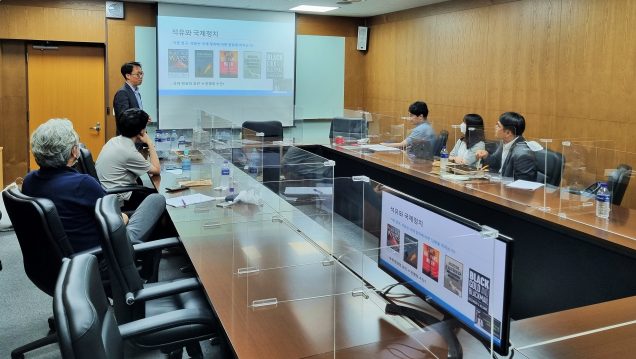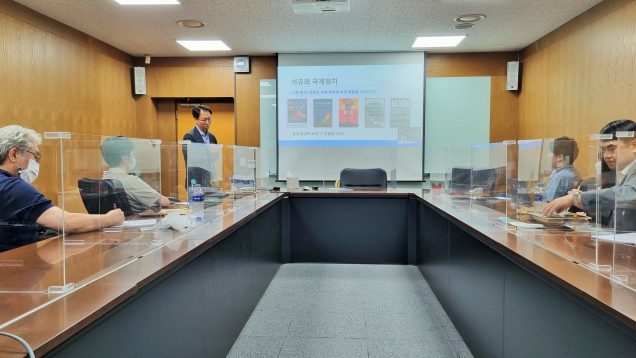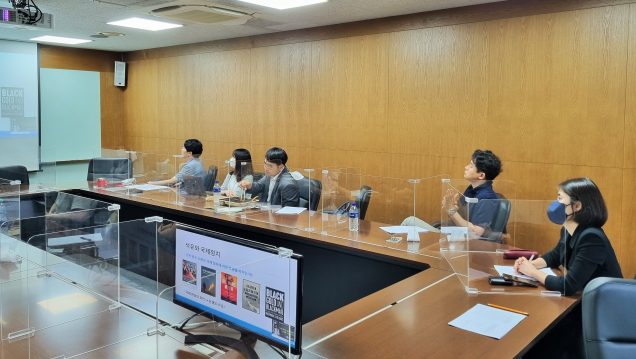[Soodang Security Studies Colloquium #22] Oil in War: The Fuel Dilemma and Military Effectiveness
- Date and Time : June 15 (Wed), 2022 / 19:00
- Venue: The Building of Politics and Economics 412 at Korea University
- Host: Dong Sun Lee (Korea University, Political Science & International Relations)
- Presenter: In Wook Kim (Sungkyunkwan University, Political Science & International Relations), Oil in War: The Fuel Dilemma and Military Effectiveness
- Discussant: Woo Taek Hong (Korea Institute for Defense Analyses), Ji Hwan Hwang (International Relations at University of Seoul), Johann Park (Incheon National University, Political Science & International Relations)
- Organized by: Peace & Democracy Institute, Department of Political Science and International Relations
In Wook Kim, a professor of PSIR at Sungkyunkwan University, participated as a presenter. Also, Woo Taek Hong, a researcher at the Korea Institute for Defense Analyses, Ji Hwan Hwang, a professor of international relations at University of Seoul, and Yo Han Park, a professor of PSIR at Incheon University participated as discussants. Dong Sun Lee, a professor of PSIR at Korea University participated as a host of this colloquium. The author, Professor In Wook Kim, introduced a paper titled “Oil in War: The Fuel Dilema and Military Effectiveness.”
Abstract: Oil is a doubled-edged sword in the modern warfare for its usage enables greater firepower and mobility in combats, while imposing tremendous operational and strategic burden to run and defend Wartime Fuel Network. The tension between the two generate a fuel dilemma, a consequential trade-off between fuel-powered capability and fuel sustainability. States facing the dilemma address it with three fuel management options: minimalism, control, and gamble. I explicate promises and pitfalls of each measure with three illustrative case studies–Vietnamese ‘minimalism’ during the Vietnam War, Chinese ‘control’ in the Korean War, and the Japanese ‘gamble’ during the WWII. The theory and evidence have important implications for future research on wartime logistics, military effectiveness, and asymmetric wars.



